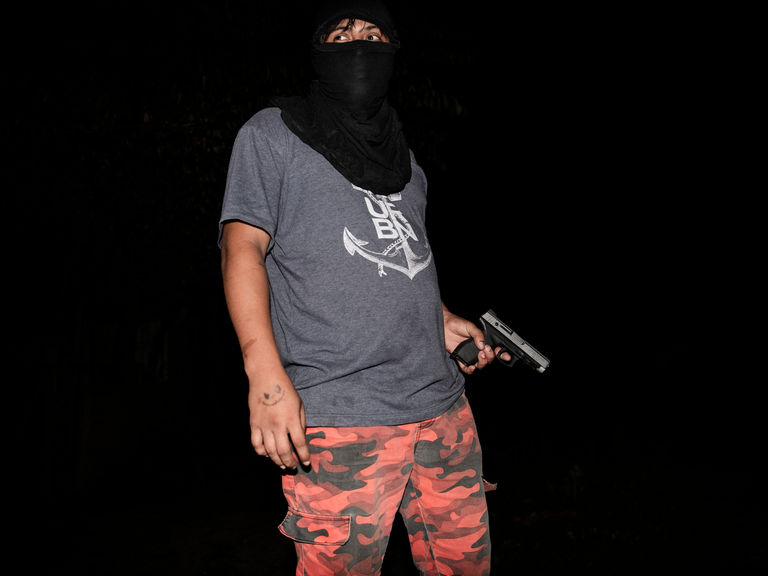Project Detail: Tears and Bullets
Contest:
Swiss Storytelling Photo Grant 9th
Brand:
LuganoPhotoDays
Author:
Gabriele Rossi
Project Info
Tears and Bullets
Violence in Honduras
The propensity for violence is inherent in every human being, however, it is up to the individual to decide whether or not to act on this impulse, which brings us to one of the oldest and most debated topics in psychology: the nature versus nurture argument.
Is violence caused by the genetic makeup of the aggressor or does it also influence the environment and some conditions that trigger a person's violence?
We read in a note from the Norwegian Refugee Council that the violence that people experience in Honduras is similar to that experienced in a war zone.
Since this country has the second highest homicide rate in the world, with 63.75 homicides per 100,000 people and also has one of the highest incidences of firearm-related deaths, a state of emergency has been in effect since December 6, 2022 national, to strengthen the fight against crime.
However, all these deaths cannot be attributed only to firefights between gangs or with the police; in fact, Honduras is also fighting a war with the gender violence that prevails in the country, mainly due to a culture and a society chauvinist and patriarchal.
The rates of sexual violence and femicide are among the highest in the world, in fact the data provided by the National Commissioner for Human Rights (Conadeh) reveal that in the last 20 years, from 2002 to 2022, one woman was killed every day in Honduras.
The inability of the authorities translates into the high level of impunity, above 94% for most crimes against women and all this impunity contributes to "normalizing" gender violence.
“Just live and die for the gang.”
They are all willing to die for what becomes their only family, they are marginalized everywhere except in their group and so it is on the street that they find and even love.
Once the person is accepted within the gang, leaving is almost impossible, in fact membership and loyalty to the group must be total.
In fact, leaving the gang means condemning yourself to death: if your companions don't kill you, those of the opposing gang or the police will, unfortunately the Armed Forces are often cited for having committed crimes.
The high unemployment rate, the high levels of intra-family violence and the large number of early pregnancies and mothers who raise their children alone (also due to the macho culture), constitute the social incubator of the phenomenon of gangs and their violent escalation.
It would be simplistic and wrong, however, to attribute the entire responsibility for the violence in Honduras to the gangs, making them a scapegoat and we must understand that behind the threshold of violence flaunted by their members, there is an impervious path that leads to the origin of the problem.
Natural families are often absent and we must not forget that for many children the gang replaces this absence: it is the only environment in which they find solidarity, mutual help, a sense of belonging and bond with a territory and this double track of ferocity and abandonment are two sides of the same coin.
People almost always become aggressive after having suffered violence themselves and often the kids who join a gang are the product of the environment in which they live and like every human being they learn to give to life what they receive from it.


















